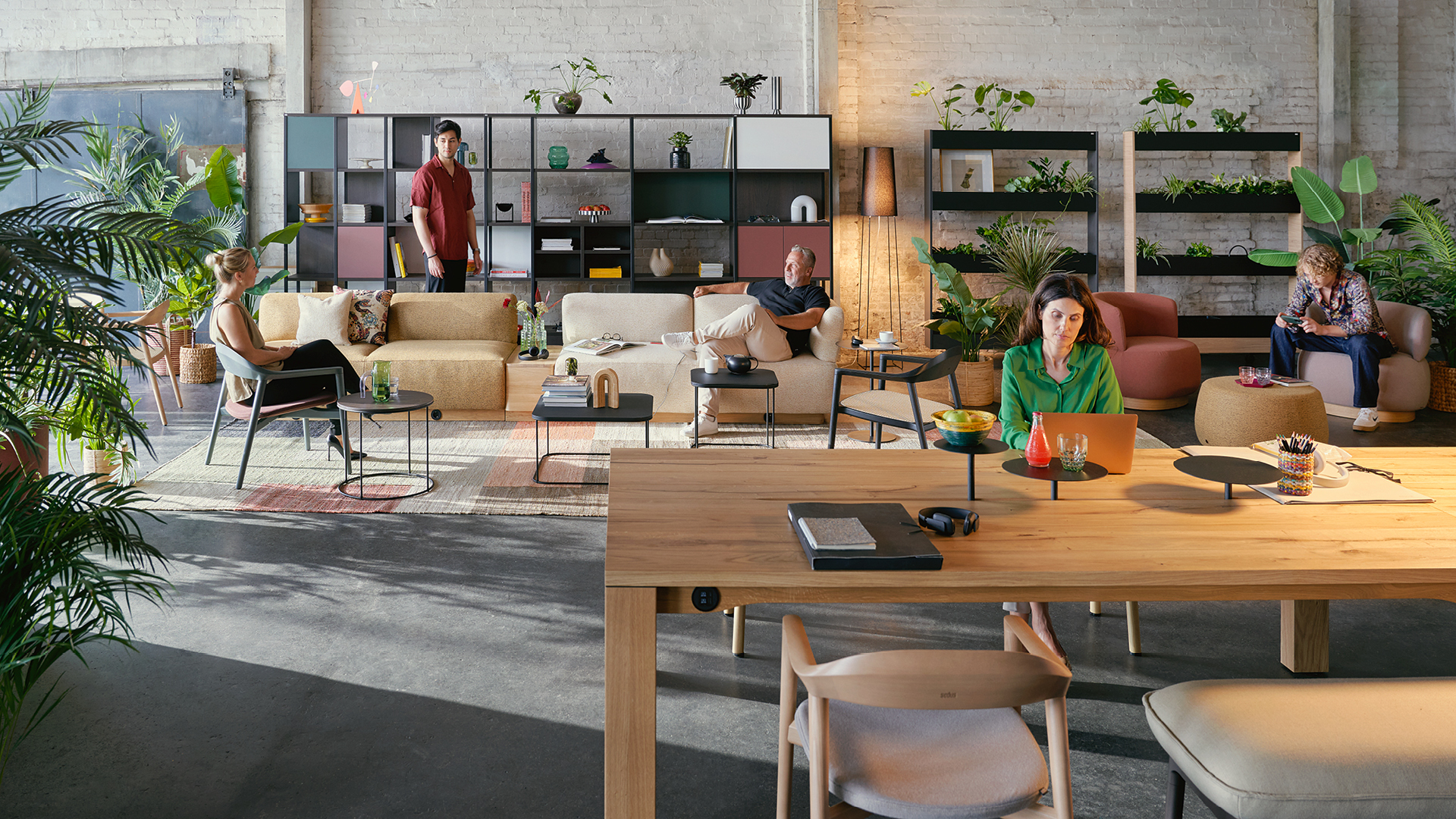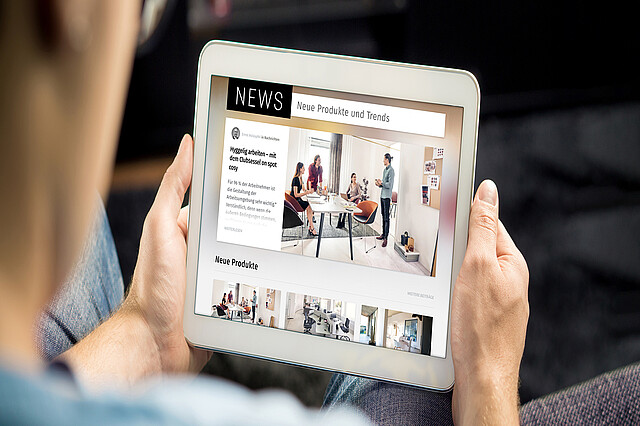What are Hybrid Ductile Commons?
The concept of Hybrid Commons refers to spaces designed to flexibly adapt to diverse working methods and individual needs. These are ‘ductile’ spaces – fluid and malleable environments that can be reshaped without losing their identity. Central to this idea is the understanding that work no longer takes place solely at a desk, but unfolds in various settings – from focused solo tasks to informal meetings and spontaneous encounters.
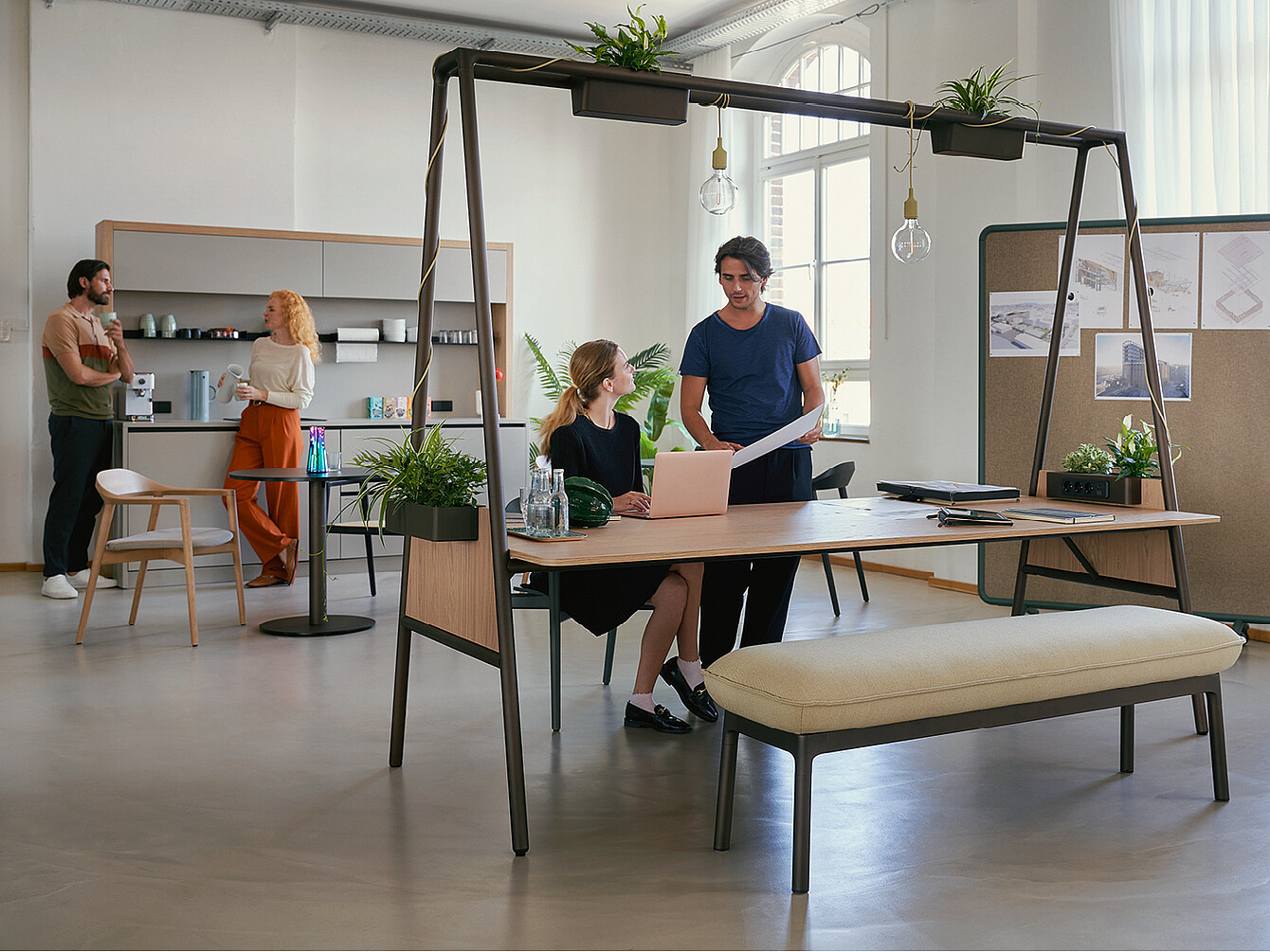
Three key zones – One versatile space
The model distinguishes three characteristic zones within a hybrid common space:
- Office Café: A space for lively work and casual interaction – perfect for informal meetings, short breaks or a change of scenery.
- Oasis: A zone of calm, ideal for regeneration, focused work and personal well-being.
- Arena: A place for exchange, collaboration and shared experiences – suited to meetings, presentations or agile teamwork.
These zones are not rigidly separated, but seamlessly interconnected – making the space ductile, responsive and user-centred.
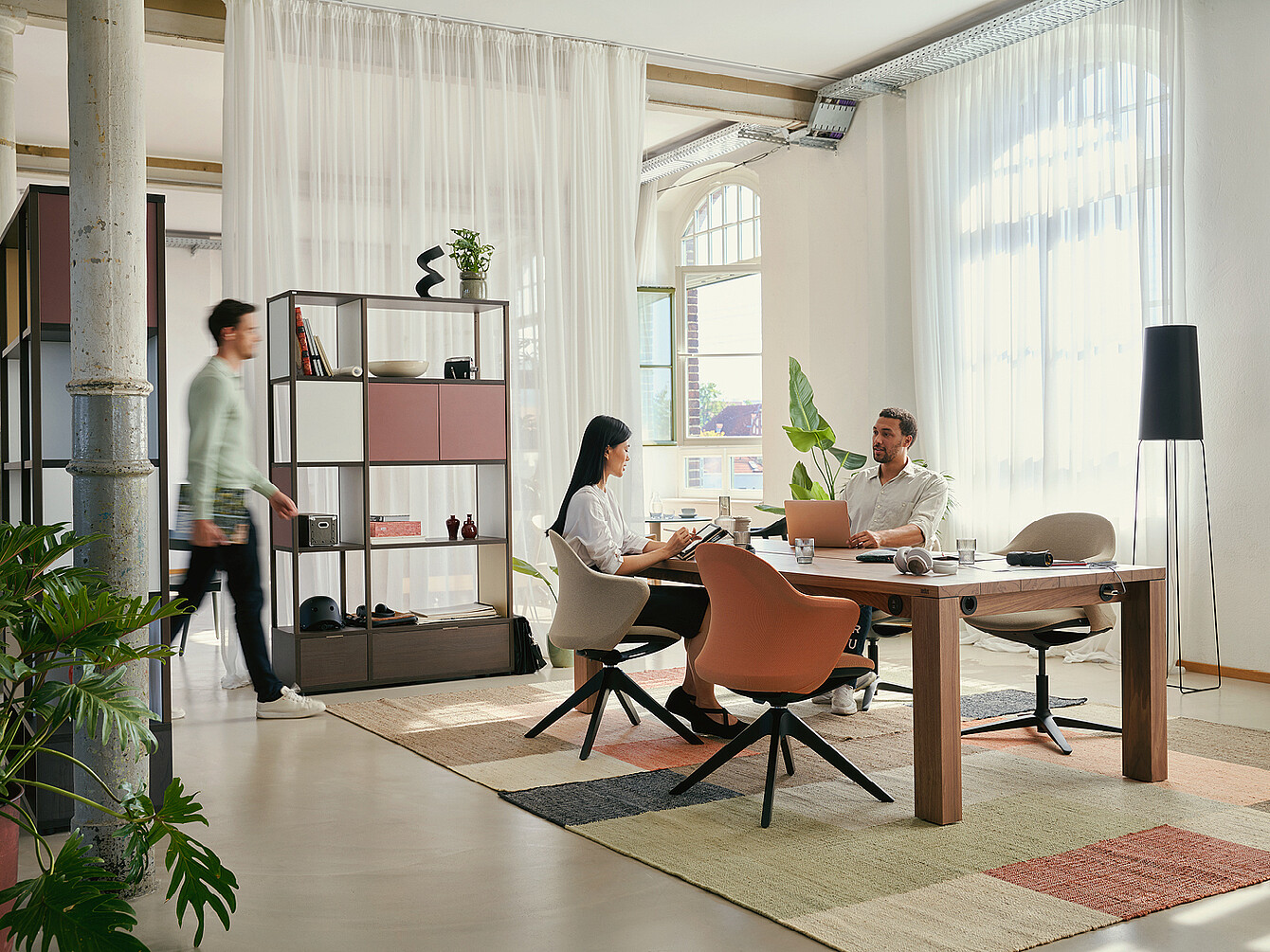
Ductility: A new dimension of flexibility
What does “ductility” mean in a contemporary office environment? It is defined by three essential qualities:
- Adaptability: The capacity to accommodate organisational change and unexpected demands without disruption.
- Integrity: The ability to preserve a consistent identity and cultural cohesion, fostering a sense of belonging among hybrid teams.
- Interpretability: Empowering users to customise their environment in line with personal preferences and working styles.
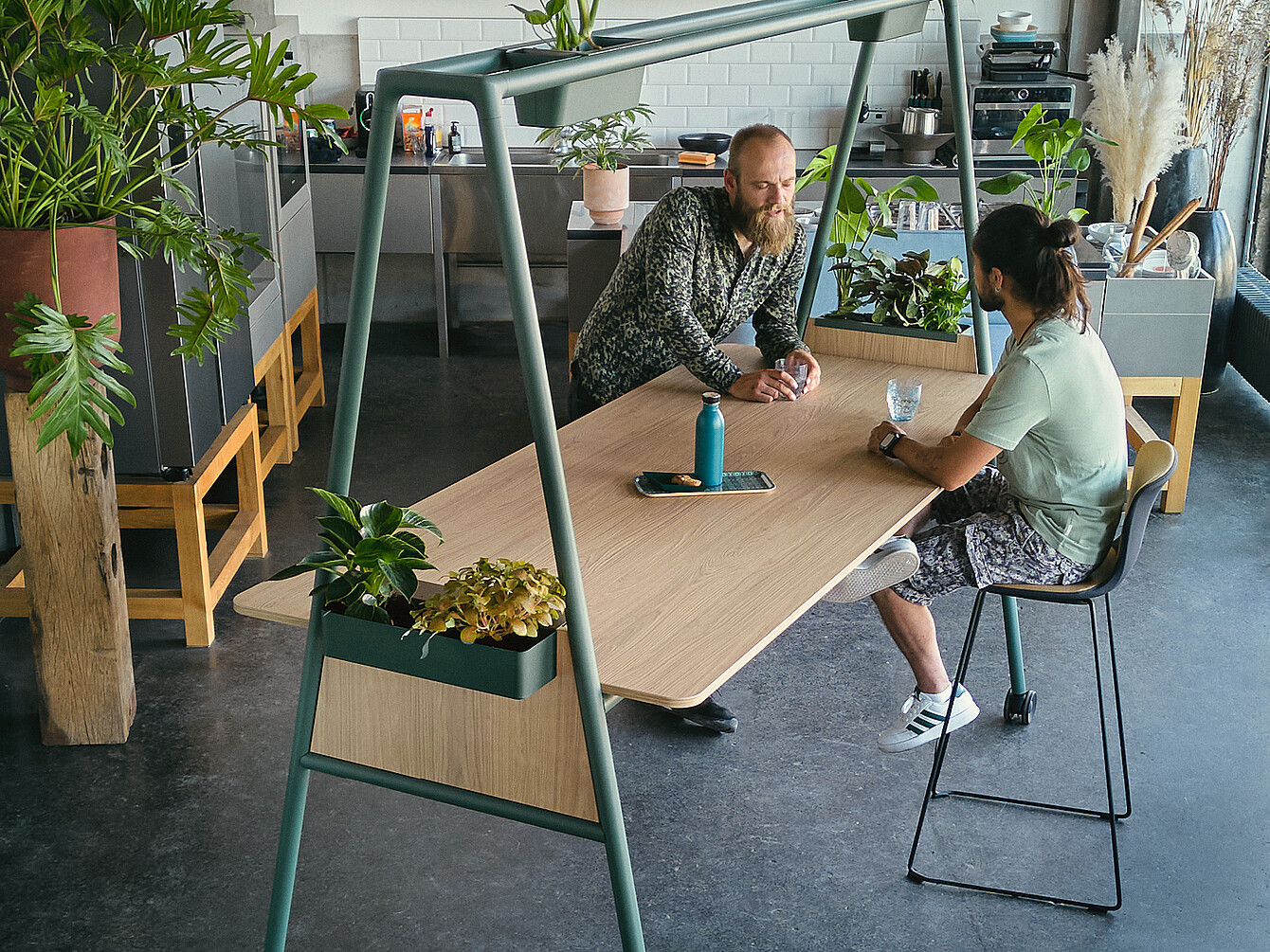
A practical example: Room solutions with Sedus
An exemplary implementation of this concept demonstrates how various zones can be intentionally equipped with suitable furniture and thoughtful design – promoting collaboration, flexibility and comfort.
At the heart of the space stands the se:café team table – a long communal table that brings a homely atmosphere into the workplace. Its natural veneer surface provides a tactile quality, while its design encourages spontaneous interaction and strengthens team cohesion.
To support agile working with an inviting, outdoor-inspired ambience, se:lab island is the ideal solution. With its homely design and two ergonomic height options for seated and standing use, this collaborative table enables flexible work settings and fosters dynamic exchanges.
The se:café bar complements the spatial concept as a modular, highly adaptable feature. Thanks to its self-supporting construction and integrated utility access, it can be installed without structural adjustments. Whether as a central meeting point in a work café, a contemporary kitchenette alternative, or a compact hospitality station in lounge and reception areas – the se:café bar proves to be impressively versatile.
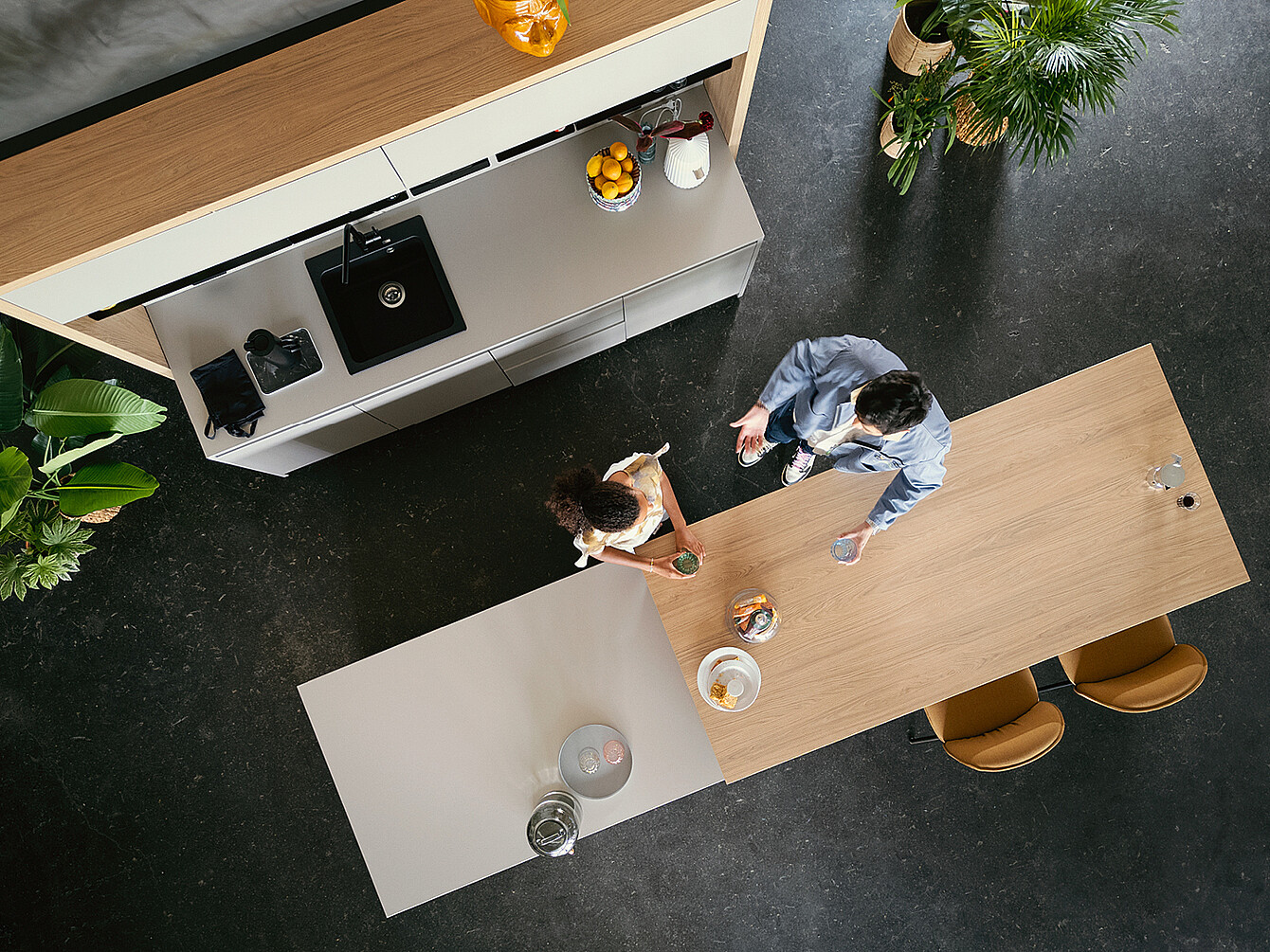
Rethinking the office – Practical design tips
For those looking to future-proof their office space, the following principles offer a valuable starting point:
- Create an inspiring office café – a setting for connection and creativity.
- Incorporate biophilic design elements – to support well-being and focus.
- Design open arenas for community – fostering team dialogue and collaboration.
- Provide dedicated quiet zones – for concentrated and independent work.
Hybrid ductile commons go far beyond furnishing trends – they reflect a new philosophy of work. These spaces offer an environment in which flexibility, a sense of belonging and individual well-being are equally prioritised. With smart product solutions like the se:café team table, se:lab island and se:café bar, the hybrid commons area becomes the beating heart of the contemporary workplace.
You can find out more about this topic in the current issue of Sedus INSIGHTS #19.
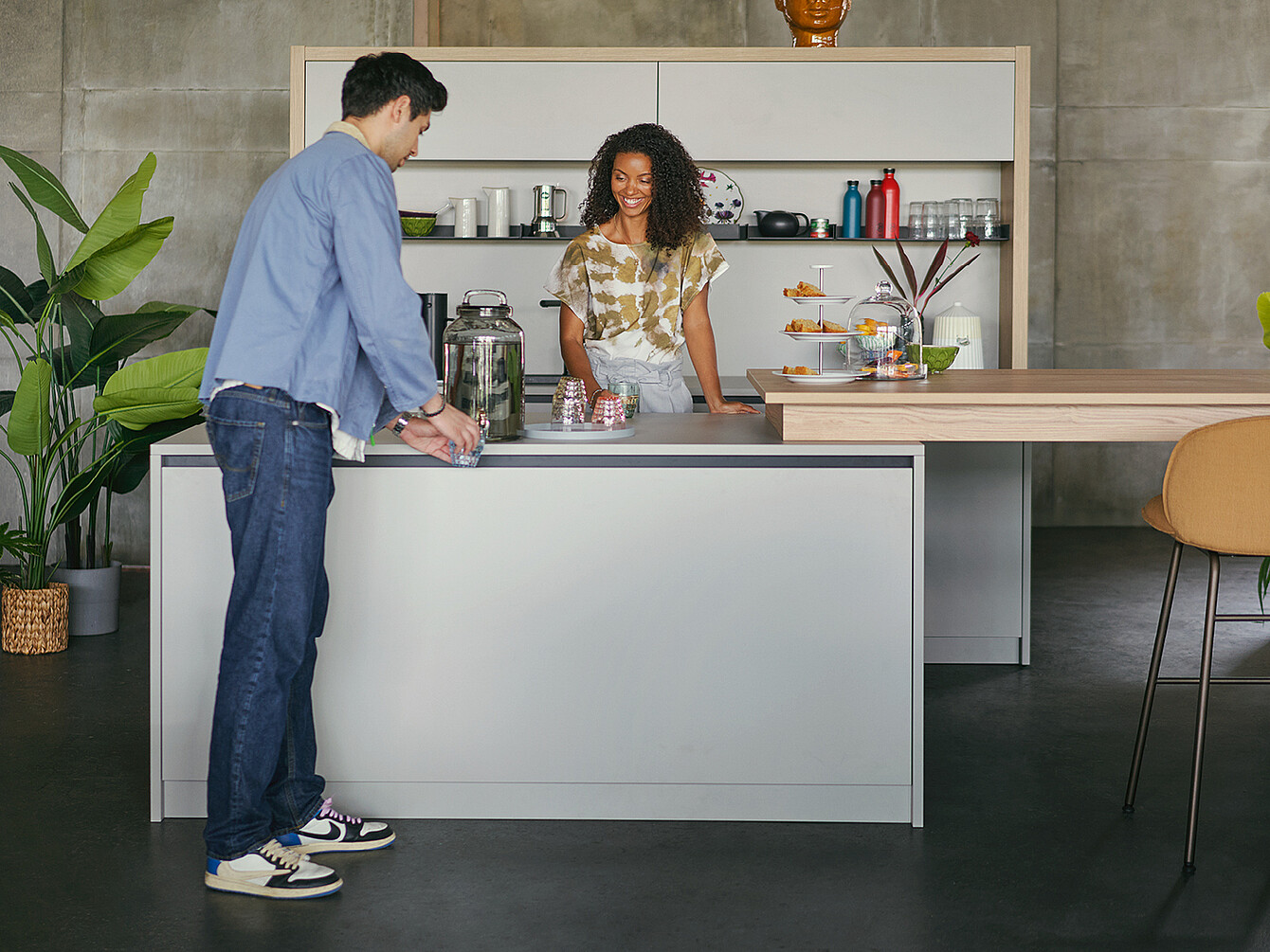
social media channels:
